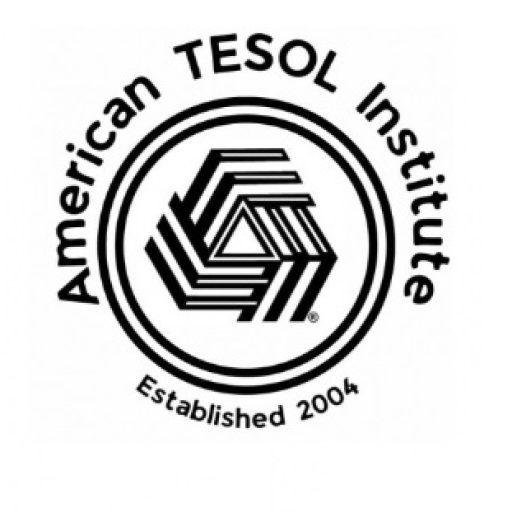With the rise of digital learning tools, teaching and learning English as a second language (TESOL) has become more dynamic and accessible than ever. A wide variety of websites and software are available to support English language learners (ELLs), helping them improve their language skills in interactive and engaging ways. This article explores some of the most useful online resources and applications for English language learners, offering teachers a range of options to integrate into their classroom or recommend to their students.
Websites for English Language Learners
1. Duolingo (www.duolingo.com)
- Overview: Duolingo is a free language-learning platform that uses gamification to make language practice enjoyable. It covers vocabulary, grammar, and pronunciation through short, bite-sized lessons.
- Best For: Beginner to intermediate learners.
- Features: Interactive quizzes, speaking exercises, and progress tracking. Learners can practice daily with fun, game-like activities.
2. BBC Learning English (www.bbc.co.uk/learningenglish)
- Overview: BBC Learning English provides free resources for English learners at all levels, offering a wide variety of courses, grammar lessons, and real-world language usage through news clips and podcasts.
- Best For: Intermediate to advanced learners.
- Features: Daily news in simplified English, pronunciation guides, grammar explanations, and video series on various topics to build listening comprehension and vocabulary.
3. English Central (www.englishcentral.com)
- Overview: English Central offers learners the chance to improve their English by watching videos, practicing speaking with AI speech recognition, and reviewing vocabulary.
- Best For: Intermediate to advanced learners.
- Features: Video-based learning, voice recognition technology to practice speaking, personalized vocabulary lists, and quizzes. The platform focuses on improving listening, speaking, and pronunciation skills.
4. Quizlet (www.quizlet.com)
- Overview: Quizlet allows teachers and students to create and share flashcard sets, offering a fun way to learn vocabulary. The platform also offers games and quizzes to make learning more interactive.
- Best For: All levels.
- Features: Flashcards, matching games, vocabulary review tools, and collaborative learning. Teachers can create custom study sets based on their curriculum.
5. ESL Video (www.eslvideo.com)
- Overview: ESL Video offers free quizzes, lessons, and listening comprehension exercises based on short video clips from movies, interviews, and news reports.
- Best For: Intermediate learners.
- Features: Video-based listening exercises, quizzes on various topics, and student progress tracking. Teachers can use the site to create customized quizzes.
6. Breaking News English (www.breakingnewsenglish.com)
- Overview: Breaking News English provides news articles at different levels of difficulty, along with related vocabulary, grammar exercises, and comprehension questions. It’s a great resource for teaching current events while building language skills.
- Best For: Intermediate to advanced learners.
- Features: Multi-level reading activities, vocabulary exercises, listening quizzes, and speed reading practices. The site offers lesson plans based on the latest global news stories.
Software for English Language Learners
1. Rosetta Stone
- Overview: Rosetta Stone is a popular language-learning software that immerses learners in English using a method that emphasizes context and repetition. Lessons focus on listening, reading, speaking, and writing.
- Best For: Beginner to advanced learners.
- Features: Voice recognition technology for pronunciation practice, grammar and vocabulary building, and immersive lessons. The software adapts to the learner’s pace and progress.
2. Memrise
- Overview: Memrise is a language-learning app that uses spaced repetition and mnemonic techniques to help students remember vocabulary and phrases more effectively. It offers a variety of courses and user-generated content.
- Best For: Beginner to intermediate learners.
- Features: Vocabulary drills, spaced repetition for memory retention, pronunciation practice, and community-generated content for specific learning needs.
3. Lingoda
- Overview: Lingoda is an online language school that offers live English classes with qualified teachers. The lessons are conducted in small groups or one-on-one, focusing on speaking, listening, reading, and writing skills.
- Best For: Intermediate to advanced learners.
- Features: Live lessons, personalized feedback, grammar and vocabulary exercises, and a structured curriculum based on language proficiency levels.
4. Grammarly
- Overview: Grammarly is an AI-powered writing assistant that helps users improve their writing by suggesting corrections for grammar, spelling, punctuation, and style.
- Best For: Intermediate to advanced learners.
- Features: Grammar and spelling correction, style suggestions, tone detection, and personalized feedback. It’s especially useful for learners who are working on academic or business writing.
5. Voxy
- Overview: Voxy is an adaptive language-learning platform that offers personalized lessons based on learners’ real-world needs. It includes authentic content, such as news articles and videos, to provide context-based learning.
- Best For: Intermediate to advanced learners.
- Features: Personalized lessons, real-world content, live tutoring, and assessments to track progress. Voxy offers content relevant to business, travel, and everyday conversation.
Integrating Digital Tools into the Classroom
Teachers can integrate these websites and software into their classrooms to enhance the learning experience in several ways:
- Flipped Classrooms: Assign learners tasks on platforms like Duolingo or Memrise as homework to reinforce vocabulary and grammar before class.
- Collaborative Projects: Use tools like Quizlet to create class-wide flashcard sets, enabling students to study and review collaboratively.
- Writing and Grammar Practice: Incorporate Grammarly or English Central for writing assignments and feedback.
- Video-based Learning: Use BBC Learning English or ESL Video to introduce topics or spark discussions in class. These platforms provide a wealth of content for listening and comprehension practice.
Conclusion
With the abundance of useful websites and software available, English language learners have more opportunities than ever to engage with the language in interactive and meaningful ways. Whether through gamified learning, immersive content, or personalized lessons, these digital tools can complement traditional classroom methods and make language learning more enjoyable and effective. Teachers should consider integrating these resources into their teaching strategies, helping students improve their skills and reach their language goals.


